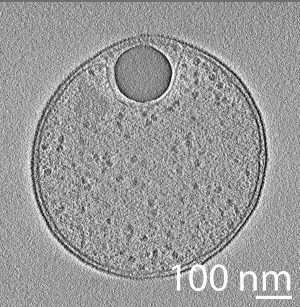Project: Characterizing the contribution of bacteria from the SUP05 clade to autotrophic and heterotrophic carbon cycling across ocean gradients
Description
NSF Abstract:
Life in the ocean is dominated by diverse communities of microorganisms that are fueled by the remains of algae. The relative activity of different microbial community members can determine the extent of greenhouse gas capture, recycling of nutrients and food production by the ocean. Currently, there is a critical gap in our ability to quantify the balance between these processes. A major roadblock in our ability to understand the microbial players is our inability to grow even the most abundant organisms in the lab and study their physiology. With the recent cultivation of three bacteria common to the ocean, the possibility exists to make major advances in our understanding of their contribution to ocean processes and how they might change in the future. This project will characterize these three bacteria in culture to develop tools to determine their activities in the field. Because these bacteria are common in low oxygen environments, this work is particularly well poised to address how microbial communities respond to oxygen-depleted waters. This project will train graduate and undergraduate students in an important research area through collaboration with the University of Washington Integrative Graduate Education and Research Traineeship program, the Program for Climate change and the University of Washington's Educational Outreach Program. Results will be presented at national and international meetings and through publication. All data will be freely available through the Biological and Chemical Oceanographic Data Management Office (BCO-DMO).
The balance between autotrophy and heterotrophy determines the size of the ocean's carbon sink and the flux of material and energy available to food chains. Despite efforts to identify the contributions of major bacterial and archaeal lineages to carbon fluxes, little is known about the environmental conditions that determine the underlying metabolisms controlling carbon flux. Members of the SUP05 clade of sulfur oxidizing gamma-proteobacteria are abundant in the dark ocean and can dominate expanding suboxic and anoxic zones, where they have the potential to both produce and consume organic matter. The recent cultivation of 3 representatives from the SUP05 clade has revealed striking metabolic diversity within the clade. These isolates represent an unprecedented opportunity to elucidate the effects of carbon limitation, energy limitation and oxygen tension on the production and consumption of organic matter by a critical group of marine bacteria. The work proposed here would 1) determine the balance between autotrophic carbon fixation and heterotrophic organic matter assimilation in diverse cultured representatives under varying environmental conditions 2) determine the kinetics of reactions fueling autotrophy 3) characterize biomarkers along gradients of autotrophic and heterotrophic production induced by varying environmental conditions and 4) detect these molecular markers in the field along with cell abundances to determine the contribution of autotrophy, heterotrophy, sulfur oxidation and denitrification to SUP05 metabolism in a field site that transects an oxygen minimum zone in the North Pacific Ocean. This project will advance understanding of SUP05, a biological driver of elemental cycling in the mesopelagic, one of the largest habitats on earth and one that is experiencing large climate driven changes, including expansion of oxygen minimum zones.
More information about this project can be found on the Morris Lab page:
http://morrislab.ocean.washington.edu/
| Dataset | Latest Version Date | Current State |
|---|---|---|
| Mass spectrometry proteomics data investigating morphological plasticity in a sulfur-oxidizing bacterium from the SUP05 clade enhances dark carbon fixation from cultures grown under under aerobic and anaerobic conditions | 2019-12-17 | Preliminary and in progress |
People
Principal Investigator: Robert Morris
University of Washington (UW)
Co-Principal Investigator: Anitra E. Ingalls
University of Washington (UW)
Contact: Robert Morris
University of Washington (UW)
Data Management Plan
DMP_Morris_Ingalls_OCE-1558483.pdf (613.51 KB)
07/28/2017

